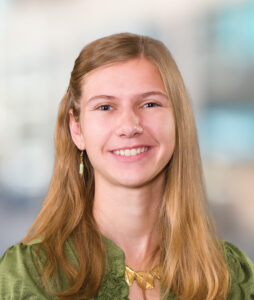
Home » WSU Tri-Cities sends students into ‘laboratory schools’ as part of their training
A new approach
WSU Tri-Cities sends students into ‘laboratory schools’ as part of their training

Tapteal Elementary School in the Richland School District was designated a laboratory school in partnership with Washington State University Tri-Cities. WSU Tri-Cities student Aracely Mendoza spoke during the dedication.
Photo by Rachel VisickNovember 14, 2024
A handful of Tri-Cities elementary schools have been designated as “laboratory schools,” offering teacher candidates at Washington State University Tri-Cities a chance to learn in various classrooms.
The move is part of an effort to get teacher candidates to observe multiple classrooms with different teaching techniques. Traditionally, teacher candidates are placed in only one classroom.
It makes a big difference, the aspiring teachers say.
“Before this, you would just be assigned to one classroom, and you would kind of stay in that classroom and observe that one teacher,” said Kyndal Leaumont, a student at WSU Tri-Cities who has been participating in the program this semester.
“The difference here with the way they’re doing it this semester is … you go and you observe almost every grade and almost every teacher in the school … You get almost a taste of everything that could be in a school,” Leaumont said.
She and other WSU Tri-Cities students talked about their experiences Oct. 18 after an event at Tapteal to celebrate it being named a “WSU Tri-Cities College of Education Teaching Laboratory School.”
Maya Angelou and Rosalind Franklin STEM elementary schools in Pasco were dedicated as laboratory schools on Nov. 4.
A wider-lens approach
The WSU Tri-Cities students are in school once a week for a three-hour period, Leaumont said. In a group, they’ll go over learning targets or what to look for while they’re observing in the classroom.
Then, the students will break into smaller groups and visit three classrooms before coming back together to discuss. Each week, students will have different topics to pay attention to.
“If you look at classroom management, that looks a lot different in first grade, second grade, fifth grade, and so being able to go in every classroom and see those different age groups and how each teacher uses different strategies, so it’s really interesting,” Leaumont said.
Aracely Mendoza, another WSU Tri-Cities student in the program, found observing different teachers helpful as well: “It all depends on your personality and your teaching style, so I feel like learning different ones from different teachers can help you figure out which one is your personal teaching style,” she said.

Teachers from Rosalind Franklin STEM elementary and leadership from WSU Tri-Cities and the Pasco School District stand with the sign identifying Rosalind Franklin Elementary as a WSU Tri-Cities College of Education Laboratory School.
| Courtesy Washington State University Tri-CitiesDiverse classrooms
The schools offer a way for the students to observe a variety of diverse classrooms.
“If you observe different classrooms in the same grade, you just see a more diverse community,” Mendoza said. “There’s the bilingual classrooms, there’s the special ed classrooms, there’s different areas in each grade level, and I feel like you get to learn more about the diversity.”
“It is one of the most amazing things to see,” Leaumont said of the bilingual program, “and the teachers here (at Tapteal) are phenomenal about all the strategies they use to incorporate all the kids and incorporate the language.”
During the Tapteal dedication ceremony, both WSU Tri-Cities and Tapteal officials unveiled the new laboratory school sign.
“This really, really just enriches the experiences that our students have,” said Judy Morrison, academic director of the WSU Tri-Cities College of Education. “… They are able to see just a whole bunch of different strategies and classrooms, teachers, and that is just going to expand their repertoire as they see more of the great teaching that’s here in the district.”
“We’re really creating something special with this partnership with Washington State University,” said Sean Langdon, Tapteal Elementary’s principal.
The next generation
Rosalind Franklin STEM Elementary Principal Jennifer Melendrez said the partnership will lead to endless possibilities for teachers and students.
“This collaboration is truly transformative, blending higher education with elementary education to elevate teacher preparation. Through this hands-on experience in our dynamic STEM environment, future educators are developing creativity, critical thinking and a passion for learning. Together, we are not only enriching the education of today, but also inspiring the next generation of students to explore the exciting possibilities of science, technology, engineering and mathematics,” she said in a statement.
WSU Tri-Cities’ teacher candidates are placed in regional schools for three types of practica: early, pre-internship and student teaching. Combined, all teacher candidates spend 45,000 hours each academic year in 33 different school districts in the Columbia Basin, according to a press release.
“The fact that we have about 85% of our students stay in our region, it’s benefiting our region,” said John Mancinelli, field services director at WSU Tri-Cities. “We’re taking care of home for decades.”
Richland, Pasco and Kennewick school districts volunteered to initiate the Laboratory School partnership. The Kennewick district is working to identify its partner schools.
Latest News Local News Education & Training Labor & Employment
KEYWORDS November 2024
Related Articles
Related Products





